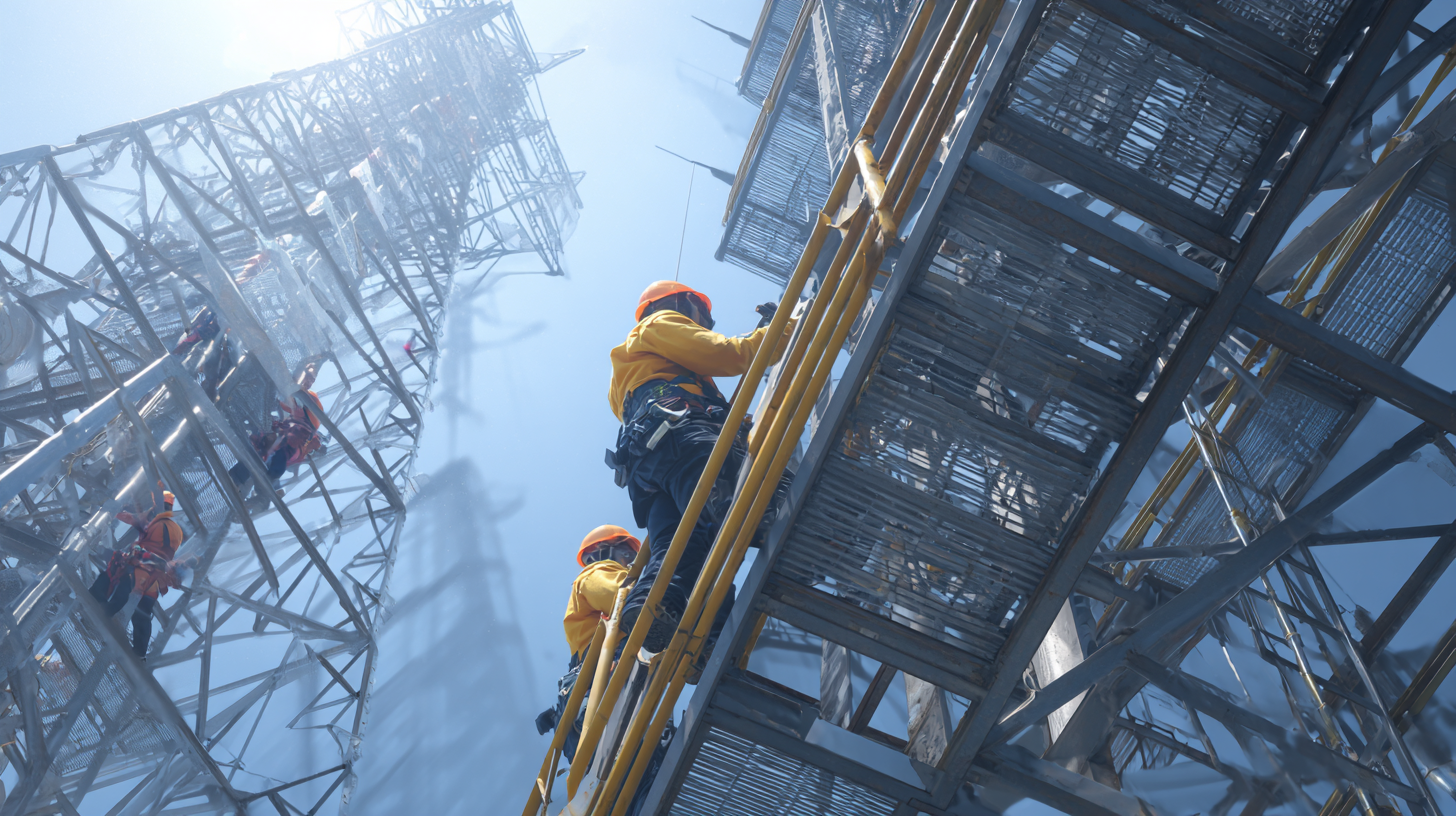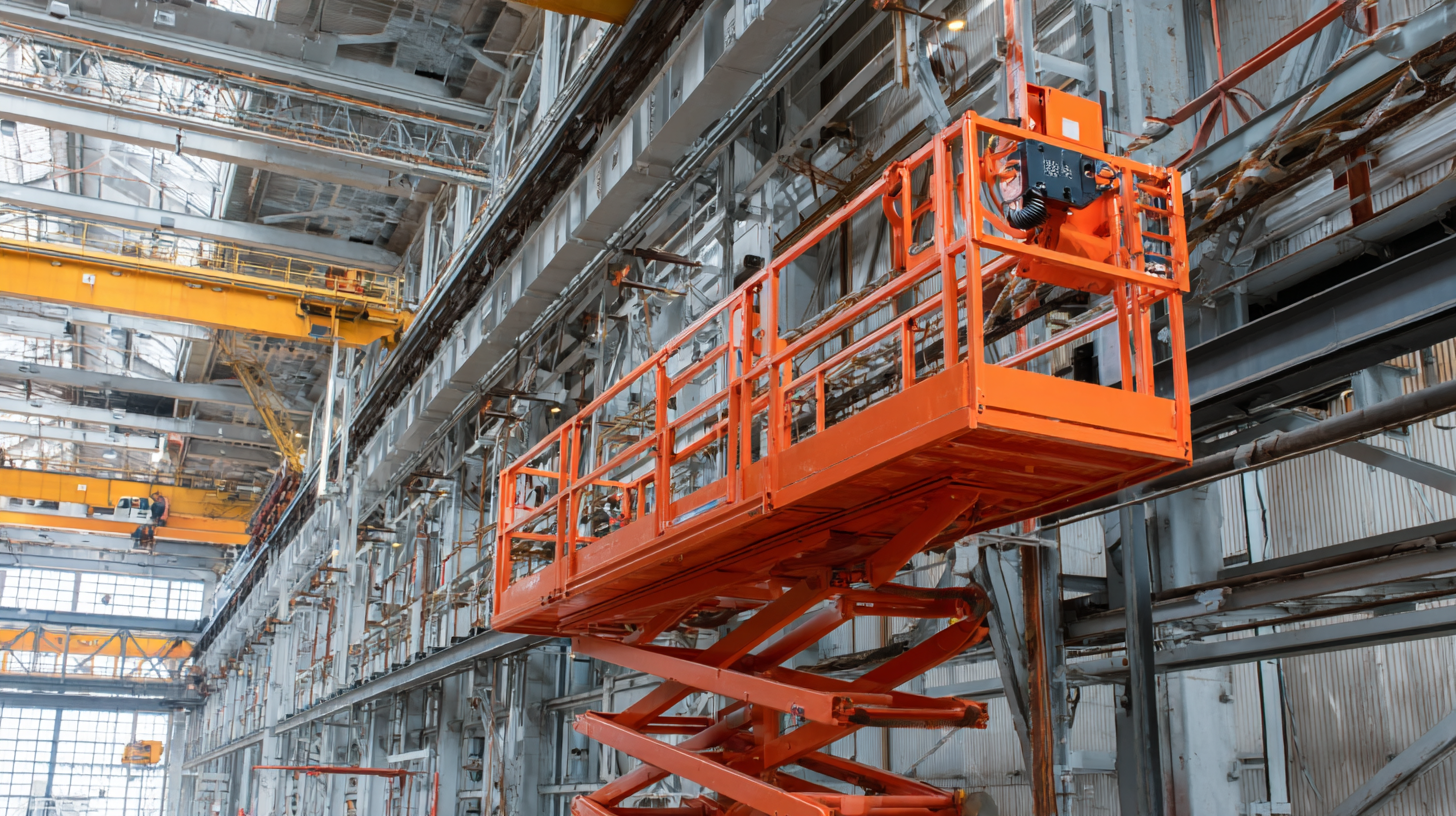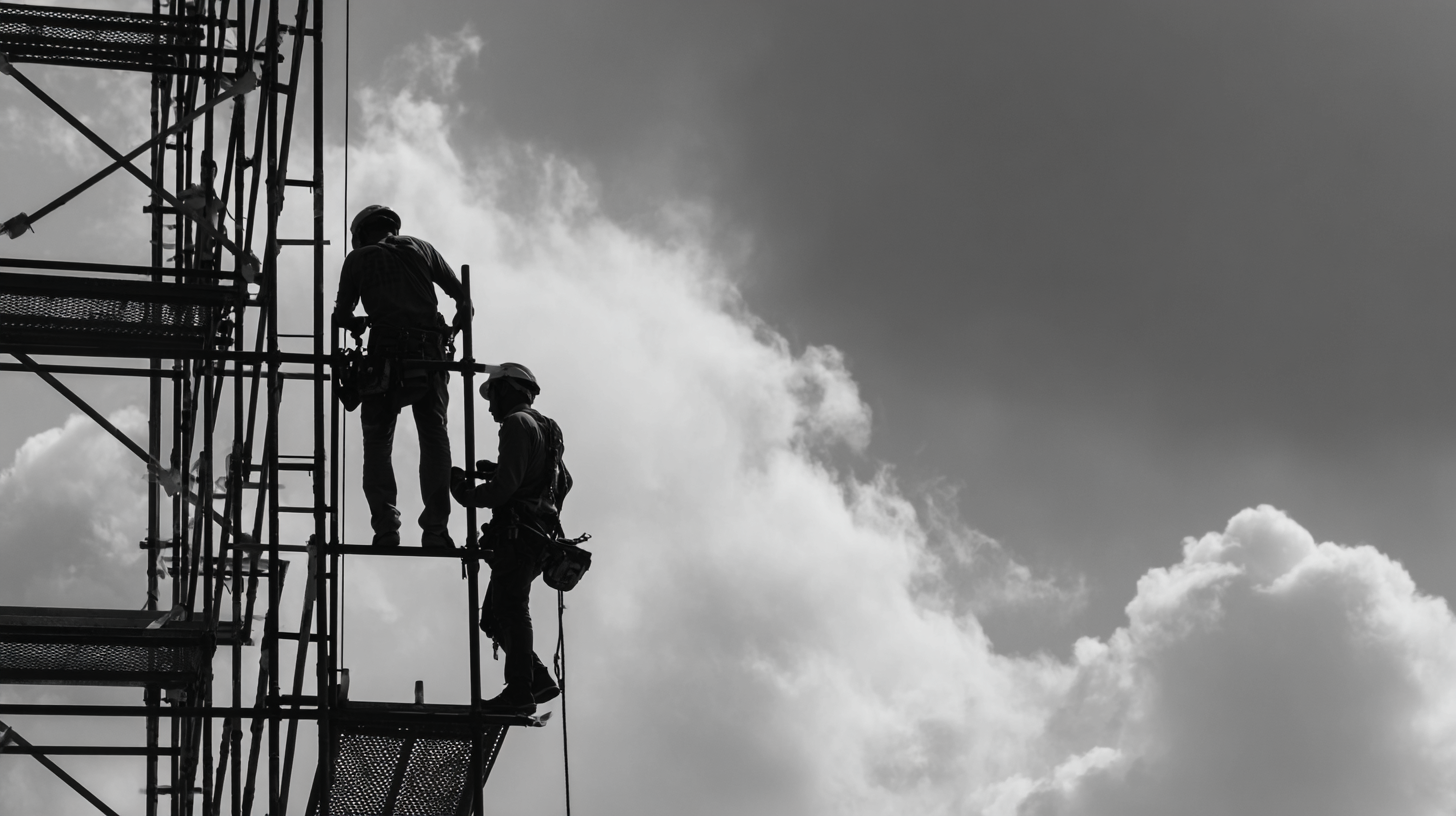Exploring Innovative Alternatives to Best Mast Climbing Work Platforms Mewps
In the construction and maintenance industries, the demand for efficient and versatile access solutions has led to the increased use of Mast Climbing Work Platforms (MEWPs). According to a report by Grand View Research, the global MEWP market size was valued at approximately $9.5 billion in 2020 and is projected to grow at a compound annual growth rate (CAGR) of 8.2% from 2021 to 2028. This impressive growth highlights the necessity for innovative alternatives to traditional MEWPs to address the evolving needs of the industry. In this blog, we will explore various industry application cases that showcase the effectiveness of innovative solutions, alongside practical guides on how to implement these alternatives. By examining real-world examples and practical considerations, this exploration aims to provide insights into optimizing job site safety, efficiency, and accessibility while enhancing overall project performance.

Innovative Features of Advanced Mast Climbing Work Platforms
When it comes to mast climbing work platforms (MCWPs), innovation is not just a trend but a necessity in the construction industry.
Advanced MCWPs are integrating sophisticated features that enhance both productivity and safety on construction sites.
According to a report from Mordor Intelligence, the global market for MCWPs is expected to grow at a CAGR of 6.9% from 2021 to 2026, driven by the increasing demand for efficient vertical access solutions.
One of the most striking innovations is the implementation of advanced control systems that allow for real-time monitoring and automated adjustments.
These systems enable operators to enhance precision and minimize downtime, significantly improving overall efficiency.
Additionally, the latest models are often equipped with enhanced safety features such as overload sensors and emergency stop buttons, which can reduce accidents on site by up to 40%, as reported by the National Institute for Occupational Safety and Health (NIOSH).
As the industry pushes for more environmentally friendly options, electric-powered versions of MCWPs are also gaining traction, offering a quieter, more sustainable alternative to traditional diesel models.
Combining these advanced functionalities with the modular design capabilities allows for versatile applications across various building structures.
The ability to customize mast climbing platforms for specific project requirements not only boosts operational flexibility but also leads to significant cost savings over time.
As industries embrace these innovative developments, the future of MCWPs looks brighter than ever.
The Benefits of Choosing Quality Manufacturing from China
The manufacturing landscape is undergoing a transformation, particularly in China, which has emerged as a leading hub for high-quality production across various sectors. Investing in quality manufacturing not only enhances product durability but also aligns with the Chinese government’s focus on high-quality development, as emphasized by Xi Jinping's recent remarks on strategic positioning for national development. Reports indicate that China's GDP grew by 5.3% in the first half of the year, showcasing the resilience and potential of its manufacturing capabilities.
When considering mast climbing work platforms, sourcing from reputable Chinese manufacturers offers distinct advantages. Quality assurance processes, adherence to international standards, and innovative design approaches contribute to the longevity and efficiency of these platforms. Companies that prioritize quality manufacturing from China are better positioned to compete globally, benefitting from substantial advancements in technology and material science.
Tips for Selecting Quality Manufacturers:
- Conduct thorough research on potential manufacturers and examine their certifications and past production records.
- Request product samples to evaluate the craftsmanship and material quality before committing to larger orders.
- Establish clear communication channels to ensure that your specific requirements and quality expectations are understood and met.
Comparative Analysis: Traditional MEWPs vs. Modern Alternatives
As the construction industry evolves, the demand for safer and more efficient work platforms has prompted a comparative analysis between traditional Mobile Elevated Work Platforms (MEWPs) and innovative alternatives. Traditional MEWPs, with their established presence, offer reliable vertical access for workers. However, they often come with limitations such as stability in adverse weather conditions, cumbersome setups, and considerable operational costs. This combination can compromise safety and efficiency on the job site.
In contrast, modern alternatives, including mast climbing work platforms and aerial lifts, are designed with enhanced safety features and versatility. These platforms are not only easier to transport and set up but also provide a stable work environment regardless of the terrain. Their ability to accommodate larger crews and equipment contributes to increased productivity, making them an attractive option for construction projects of varying scales. By focusing on these innovative alternatives, the industry can leverage advancements in technology and design to improve job site safety and efficiency, ultimately reshaping how elevated work is approached.

Safety Standards and Regulations in Mast Climbing Equipment
When it comes to mast climbing work platforms (MCWPs), safety standards and regulations play a crucial role in ensuring the well-being of workers at heights. These elevated platforms are essential for construction and maintenance tasks, but their usage comes with inherent risks. Compliance with safety regulations is not merely a legal obligation; it is a commitment to safeguarding lives. Organizations must adhere to standards set by various governing bodies, such as the Occupational Safety and Health Administration (OSHA) in the United States and similar entities worldwide, which outline the requirements for equipment design, operational procedures, and worker training.

Moreover, innovations in technology are leading to the development of safer and more efficient mast climbing equipment. Manufacturers are increasingly integrating features like advanced monitoring systems, automatic safety shut-offs, and user-friendly controls to enhance operator awareness and minimize risks. Training programs that emphasize the importance of these regulations coupled with hands-on experience with new technologies can empower workers to navigate potential hazards effectively. As the industry progresses, staying informed about evolving safety standards is paramount for both employers and employees to foster a culture of safety in the workplace.
Case Studies: Successful Projects Utilizing Innovative Work Platforms
In recent years, the construction industry has seen a surge in the adoption of innovative alternatives to traditional Mast Climbing Work Platforms (MCWPs) like Mobile Elevating Work Platforms (MEWPs). According to a report by Research and Markets, the global MEWP market is projected to grow at a CAGR of 7.5% from 2020 to 2025, emphasizing the industry's shift toward more versatile and efficient solutions. Case studies highlight how companies have successfully integrated these modern work platforms to enhance productivity and safety on complex projects.
One notable example is the use of articulated boom lifts in the refurbishment of high-rise buildings. In a project in Dubai, contractors reported a 30% reduction in labor costs and a 20% increase in project completion speed after transitioning to advanced boom lifts, which allowed for better maneuverability and access to tight spaces. Furthermore, a study by the International Journal of Advanced Engineering Research and Science revealed that using innovative work platforms not only improved site efficiency but also significantly reduced the risk of falls, a leading cause of injury in construction. These findings illustrate the tangible benefits of adopting new technologies in the labor-intensive construction environment.
Exploring Innovative Alternatives to Best Mast Climbing Work Platforms Mewps - Case Studies: Successful Projects Utilizing Innovative Work Platforms
| Project Name | Platform Type | Height Range (meters) | Load Capacity (kg) | Completion Year | Key Features |
|---|---|---|---|---|---|
| Skyline Tower Renovation | Mast Climbing Work Platform | 10-40 | 800 | 2022 | Dual platform, quick setup |
| City Mall Expansion | Rope Access System | 5-30 | 500 | 2021 | Lightweight, flexible positioning |
| Bridge Rehabilitation Project | Portable Aerial Platform | 3-15 | 350 | 2023 | Compact design, easy transport |
| High-Rise Office Building | Self-Propelled Work Platform | 15-50 | 1,000 | 2022 | Electric drive, reduced emissions |
| Residential Building Project | Vertical Transport Platform | 8-20 | 600 | 2020 | Modular design, quick assembly |
